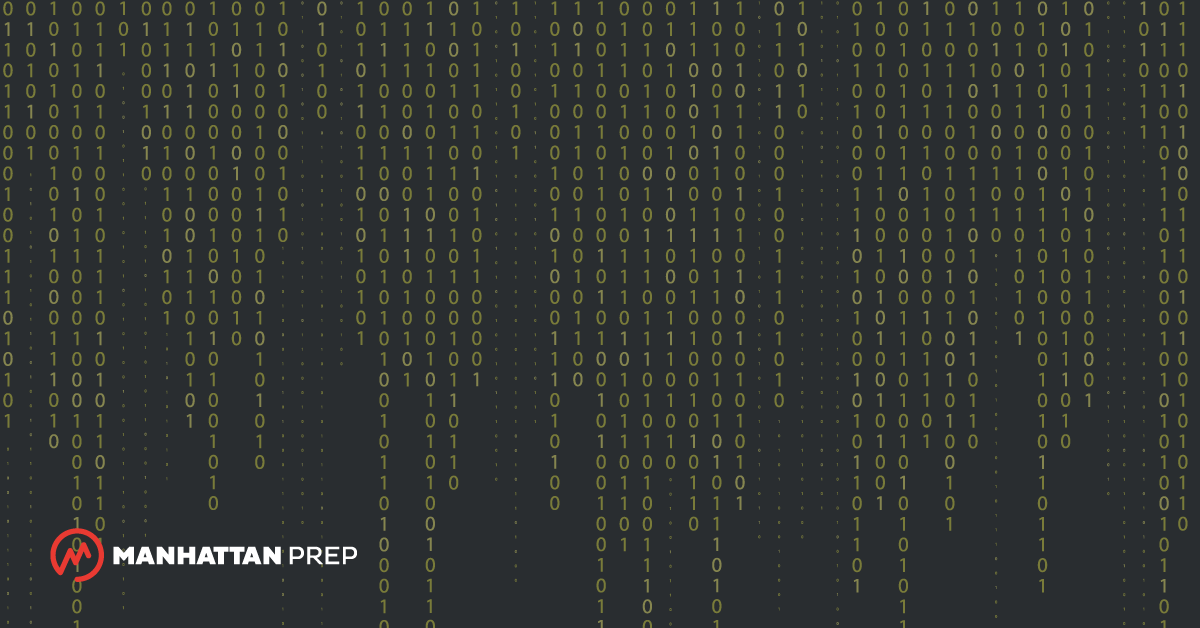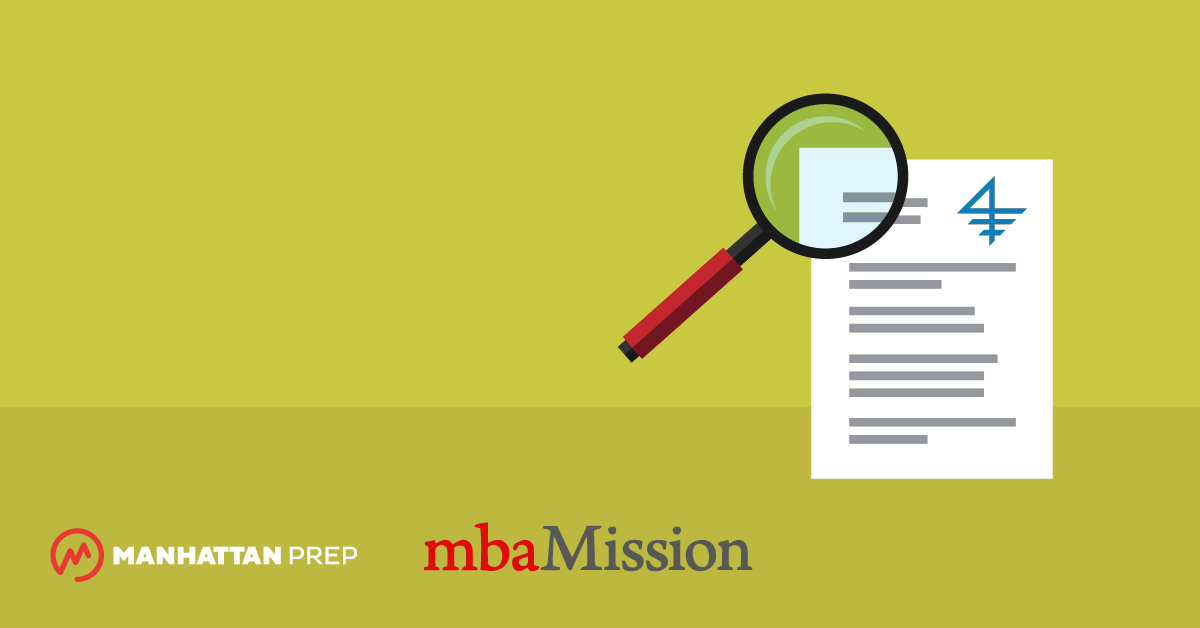Shed Your Pride on the GMAT

“Just tell us the answer!” a student demanded of me in a recent class. She wasn’t rude, but she definitely wasn’t happy. And I understand—I wasn’t being an easy teacher. I try not to be. I don’t want to be an explanation parrot, because my explanations don’t really transform into my students’ learning. Learning is harder than that. It requires active thought and wrestling with difficult concepts. So even when my students give a right answer, I ask them the often-feared question, “Why do you think that?” Read more
Mission Admission: Set the Tone Early and Use Active Verbs in Your MBA Application Essay

Mission Admission is a series of MBA admission tips from our exclusive admissions consulting partner, mbaMission.
As any good journalist will tell you, the key to writing a good newspaper story or opinion piece is to make sure the very first line grabs the reader’s attention. Many authors employ this tactic when writing books. Perhaps few of us have actually read Herman Melville’s Moby Dick, but many know that the novel begins with three famous words: “Call me Ishmael.” A powerful first line can stick with readers long after they have finished reading—and sometimes even when they have not read something firsthand. For example, we all likely recognize the phrase “It was a dark and stormy night,” but few of us may know that it is the opening line of a book by an obscure writer (Paul Clifford by Edward George Bulwer-Lytton). Read more
Join us at The MBA Tour U.S.!

This is your chance to meet Columbia, MIT Sloan, UCLA, UC Berkeley, Chicago Booth, Kellogg, Stanford, and more top business programs. Connect in person to ask MBA questions, learn about program offerings, and discover how a graduate business degree can boost your career. Read more
Cracking the GMAT Code

The GMAT will never lie to you. But, it doesn’t always tell you what you really want to know. The GMAT is a little bit like my friend in this exchange:
Me: “What do you think of this outfit?”
My friend: “Well, it’s very… creative.” Read more
Michigan Ross Essay Analysis, 2018-2019

How can you write essays that grab the attention of MBA admissions committees? With this thorough Michigan Ross essay analysis, our friends at mbaMission help you conceptualize your essay ideas and understand how to execute, so that your experiences truly stand out.
The Ross School of Business at the University of Michigan must have liked the essay questions it used last year, because it has made only the smallest of tweaks to them for this season. Previously, the school gave applicants nine options for its 100-word short answers—this year, candidates have just six. One has to wonder whether the admissions committee received an abundance of responses to the prompts that were kept, while those that were largely ignored by applicants were discarded. Similarly, Michigan Ross has maintained a second 300-word career goal essay but has refined it, dropping verbiage about long-term goals and asking only about applicants’ short-term goals. Again, we will make an inference here: Michigan Ross is saying that most long-term goals are so vague and prone to change that it is interested in learning only about the short term, which the school can more directly influence. Anyway, those are the tweaks; our Michigan Ross essay analysis follows… Read more
GMAT Critical Reasoning: Arguments that Predict the Future

GMAT Critical Reasoning is repetitive. The arguments in GMAT Critical Reasoning problems might be dressed up differently—one is about local politics, another is about business—but, under the surface, the arguments use the same tricks over and over again. If you learn to spot these tricks, you’ll also learn to spot the right answer. (You’ll also start poking holes in every argument you hear, which is a great way to make new friends.) Read more
Why Robots Aren’t So Good at GMAT Sentence Correction

Greetings, reader. I wish to determine whether you are a robot. To help me do so, I will show you a sentence, and then ask you a very simple question about the sentence. Just so you know, the sentence uses correct grammar and would be an acceptable answer choice were it to appear in a GMAT Sentence Correction question. Please don’t worry about correcting the sentence; instead, just read it and then answer the question. Ready? Read more
Sucking All the Juice Out of GMAT Quant Problems (Part 2)

Grab your Official Guide as we walk through 3 GMAT Quant problems (Problem Solving), hoping to drink every drop of knowledge from the problem before we say, “Yo, that keg is kicked.”
In part 1, we discussed the process of maxing out the value of the GMAT Quant problems you do.
As you review them, classify your current level of mastery for that problem. Read more
Columbia Business School Essay Analysis, 2018-2019

How can you write essays that grab the attention of MBA admissions committees? With this thorough Columbia Business School essay analysis, our friends at mbaMission help you conceptualize your essay ideas and understand how to execute, so that your experiences truly stand out.
Columbia Business School (CBS) has just released its essay questions for this year, and the admissions office is offering applicants “a little bit old and a little bit new.” Its micro essay (really just a goal statement, to be fair) and first essay remain unchanged, while its second essay is a repackaging of a prompt from two years ago, and its third is brand new. In the past, for its third essay, Columbia Business School applicants could choose from two prompt options, generally pertaining to their personal lives and passions; now, candidates must respond to a question about a team failure instead. In short, this year, applicants have less choice with their essays (though the word counts have not changed), and the topics involved skew slightly in favor of the professional and academic and away from the personal. Let’s jump into our Columbia Business School essay analysis… Read more
Executive Assessment: Fast Math for Faster Solutions (Part 2)

Last time, I gave you a couple of questions to try and then we discussed how to minimize your work on the first one. (If you haven’t read the first installment yet, go do that now.) Today, we’re going to review the second problem. Read more